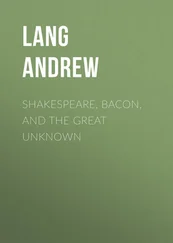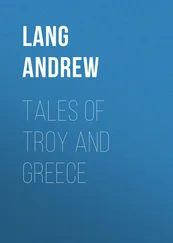Andrew Lang - Cock Lane and Common-Sense
Здесь есть возможность читать онлайн «Andrew Lang - Cock Lane and Common-Sense» — ознакомительный отрывок электронной книги совершенно бесплатно, а после прочтения отрывка купить полную версию. В некоторых случаях можно слушать аудио, скачать через торрент в формате fb2 и присутствует краткое содержание. Жанр: foreign_antique, foreign_prose, на английском языке. Описание произведения, (предисловие) а так же отзывы посетителей доступны на портале библиотеки ЛибКат.
- Название:Cock Lane and Common-Sense
- Автор:
- Жанр:
- Год:неизвестен
- ISBN:нет данных
- Рейтинг книги:4 / 5. Голосов: 1
-
Избранное:Добавить в избранное
- Отзывы:
-
Ваша оценка:
- 80
- 1
- 2
- 3
- 4
- 5
Cock Lane and Common-Sense: краткое содержание, описание и аннотация
Предлагаем к чтению аннотацию, описание, краткое содержание или предисловие (зависит от того, что написал сам автор книги «Cock Lane and Common-Sense»). Если вы не нашли необходимую информацию о книге — напишите в комментариях, мы постараемся отыскать её.
Cock Lane and Common-Sense — читать онлайн ознакомительный отрывок
Ниже представлен текст книги, разбитый по страницам. Система сохранения места последней прочитанной страницы, позволяет с удобством читать онлайн бесплатно книгу «Cock Lane and Common-Sense», без необходимости каждый раз заново искать на чём Вы остановились. Поставьте закладку, и сможете в любой момент перейти на страницу, на которой закончили чтение.
Интервал:
Закладка:
Once more, Rome in the late Republic, the Rome of Cicero, was ‘enlightened,’ as was the Greece of Lucian; that is the educated classes were enlightened. Yet Lucretius, writing only for the educated classes, feels obliged to combat the belief in ghosts and the kind of Calvinism which, but for his poem, we should not know to have been widely prevalent. Lucian, too, mocks frequently at educated belief in just such minor and useless miracles as we are considering, but then Lucian lived in an age of cataclysm in religion. Looking back on history we find that most of historical time has either been covered with dark ignorance, among savages, among the populace, or in all classes; or, on the other hand, has been marked by enlightenment, which has produced, or accompanied, religious or irreligious crises. Now religious and irreligious crises both tend to beget belief in abnormal occurrences. Religion welcomes them as miracles divine or diabolical. Scepticism produces a reaction, and ‘where no gods are spectres walk’. Thus men cannot, or, so far, men have not been able to escape from the conditions in which marvels flourish. If we are savages, then Vuis and Brewin beset the forest paths and knock in the lacustrine dwelling perched like a nest on reeds above the water; tornaks rout in the Eskimo hut, in the open wood, in the gunyeh , in the Medicine Lodge. If we are European peasants, we hear the Brownie at work, and see the fairies dance in their grassy ring. If we are devoutly Catholic we behold saints floating in mid-air, or we lay down our maladies and leave our crutches at Lourdes. If we are personally religious, and pass days in prayer, we hear voices like Bunyan; see visions like the brave Colonel Gardiner or like Pascal; walk environed by an atmosphere of light, like the seers in Iamblichus, and like a very savoury Covenanting Christian. We are attended by a virtuous sprite who raps and moves tables as was a pious man mentioned by Bodin and a minister cited by Wodrow. We work miracles and prophesy, like Mr. Blair of St. Andrews (1639-1662); we are clairvoyant, like Mr. Cameron, minister of Lochend, or Loch-Head, in Kintyre (1679). If we are dissolute, and irreligious like Lord Lyttelton, or like Middleton, that enemy of Covenanters, we see ghosts, as they did, and have premonitions. If we live in a time of witty scepticism, we take to the magnetism of Mesmer. If we exist in a period of learned and scientific scepticism, and are ourselves trained observers, we may still watch the beliefs of Mr. Wallace and the experiments witnessed by Mr. Crookes and Dr. Huggins.
Say we are Protestants, and sceptical, like Reginald Scot (1584), or Whigs, like De Foe, we then exclaim with Scot, in his Discovery of Witchcraft (1584), that minor miracles, moving tables, have gone out with benighted Popery, as De Foe also boasts in his History of the Devil . Alas, of the table we must admit eppur si muove ; it moves, or is believed by foreign savants to move, for a peasant medium, Eusapia Paladino. Mr. Lecky declares (1865) that Church miracles have followed Hop o’ my Thumb; they are lost, with no track of white pebbles, in the forest of Rationalism. 13 13 This illustration is not Mr. Lecky’s.
And then Lourdes comes to contradict his expectation, and Church miracles are as common as blackberries. Enfin , mankind, in the whole course of its history, has never got quit of experiences which, whatever their cause, drive it back on the belief in the marvellous. 14 14 We have here thrown together a crowd of odd experiences. The savages’ examples are dealt with in the next essay; the Catholic marvels in the essay on ‘Comparative Psychical Research’. For Pascal, consult L’Amulette de Pascal , by M. Lélut; for Iamblichus, see essay on ‘Ancient Spiritualism’. As to Welsh, the evidence for the light in which he shone is printed in Dr. Hill Burton’s Scot Abroad (i. 289), from a Wodrow MS. in Glasgow University. Mr. Welsh was minister of Ayr. He was meditating in his garden late at night. One of his friends ‘chanced to open a window towards the place where he walked, and saw clearly a strange light surround him, and heard him speak strange words about his spiritual joy’. Hill Burton thinks that this verges on the Popish superstition. The truth is that eminent ministers shared the privileges of Mediums and of some saints. Examples of miraculous cures by ministers, of clairvoyance on their part, of spirit-raps attendant on them, and of prophecy, are current on Presbyterian hagiology. No ministers, to our knowledge, were ‘levitated,’ but some nearly flew out of their pulpits. Patrick Walker, in his Biographia Presbyteriana , vol. ii. p. 21, mentions a supernatural light which floated round The Sweet Singers, Meikle John Gibb and his friends, before they burned a bible. Mr. Gibb afterwards excelled as a pow-wow, or Medicine Man, among the Red Indians.
It is a noteworthy circumstance that (setting apart Church miracles, and the epidemic of witchcraft which broke out simultaneously with the new learning of the Renaissance, and was fostered by the enlightened Protestantism of the Reformers, the Puritans, and the Covenanters, in England, Scotland and America) the minor miracles, the hauntings and knockings, are not more common in one age than in another. Our evidence, it is true, does not quite permit us to judge of their frequency at certain periods. The reason is obvious. We have no newspapers, no miscellanies of daily life, from Greece, Rome, and the Middle Ages. We have from Greece and Rome but few literary examples of ‘Psychical Research,’ few collections of books on ‘Bogles’ as Scott called them. We possess Palæphatus, the life of Apollonius of Tyana, jests in Lucian, argument and exposition from Pliny, Porphyry, Iamblichus, Plutarch, hints from Plato, Plautus, Lucretius, from St. Augustine and other fathers. Suetonius chronicles noises and hauntings after the death of Caligula, but, naturally, the historian does not record similar disturbances in the pauperum tabernaæ.
Classical evidence on these matters, as about Greek and Roman folklore in general, we have to sift painfully from the works of literary authors who were concerned with other topics. Still, in the region of the ghostly, as in folklore at large, we have relics enough to prove that the ancient practices and beliefs were on the ordinary level of today and of all days: and to show that the ordinary numbers of abnormal phenomena were supposed to be present in the ancient civilisations. In the Middle Ages – the ‘dark ages’ – modern opinion would expect to find an inordinate quantity of ghostly material. But modern opinion would be disappointed. Setting aside saintly miracles, and accusations of witchcraft, the minor phenomena are very sparsely recorded. In the darkest of all ‘dark ages,’ when, on the current hypothesis, such tales as we examine ought to be most plentiful, even witch-trials are infrequent. Mr. Lecky attributes to these benighted centuries ‘extreme superstition, with little terrorism, and, consequently, little sorcery’. The world was capable of believing anything, but it believed in the antidote as well as in the bane, in the efficacy of holy water as much as in the evil eye. When, with the dawn of enlightenment in the twelfth century, superstition became cruel, and burned witch and heretic, the charges against witches do not, as a rule, include the phenomena which we are studying. Witches are accused of raising storms, destroying crops, causing deaths and blighting marriages, by sympathetic magic; of assuming the shapes of beasts, of having intercourse with Satan, of attending the Sabbat. All these fables, except the last, are survivals from savage beliefs, but none of these occurrences are attested by modern witnesses of all sorts, like the ‘knockings,’ ‘movements,’ ‘ghosts,’ ‘wraiths,’ ‘second sight,’ and clairvoyance.
Читать дальшеИнтервал:
Закладка:
Похожие книги на «Cock Lane and Common-Sense»
Представляем Вашему вниманию похожие книги на «Cock Lane and Common-Sense» списком для выбора. Мы отобрали схожую по названию и смыслу литературу в надежде предоставить читателям больше вариантов отыскать новые, интересные, ещё непрочитанные произведения.
Обсуждение, отзывы о книге «Cock Lane and Common-Sense» и просто собственные мнения читателей. Оставьте ваши комментарии, напишите, что Вы думаете о произведении, его смысле или главных героях. Укажите что конкретно понравилось, а что нет, и почему Вы так считаете.
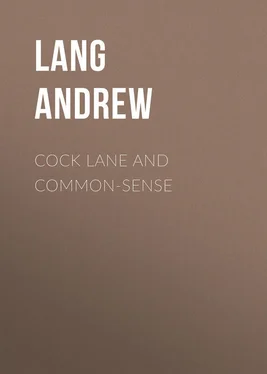

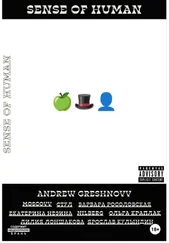
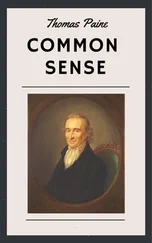



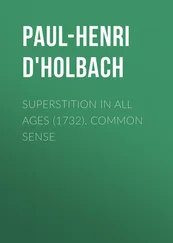
![Andrew Lang - XXXII Ballades in Blue China [1885]](/books/745214/andrew-lang-xxxii-ballades-in-blue-china-1885-thumb.webp)
